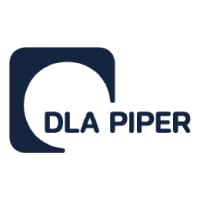
Chief Evangelist and General counsel | ContractPodAi



Jerry Levine
Chief Evangelist and General counsel | ContractPodAi
Major legal advisers/ external counsel: Pearl Cohen, CMS Wistrand, Wilson Sonsini
What are the projects that you are most proud of working on over the past 12 months?
For ContractPodAi, I’m very proud of our work improving our customers’ lives and their legal departments through offering solutions that really make a difference; I like to say “we want you to be superheroes to the rest of your business”. It’s been wonderful being part of an amazing team made up of lawyers and engineers who are focused on delivering real world results through our Leah generative AI solutions as well as improving the CLM landscape with our core CLM offering.
There’s also been a lot of internal wins, including driving our growth with our new partner-lead delivery model which has been incredibly successful for our customers, as well as helping our partners deliver better outcomes for their clients. In the legal technology space, I think that there’s real value to maintaining relationships with both our competitors and our colleagues in the industry, and one of my goals — even when there are disagreements — is to find outcomes that work for everyone. So, while I may not be able to disclose some of these results, I’ve had a remarkable year of walking away from disputes while preserving friendships and collegiality, which is a big plus in my opinion.
Based on your experiences in the past year, are there any trends in the legal or business world that you are keeping an eye on that you think other in-house lawyers should be mindful of?
The most transformative trend I’ve seen in the legal profession this past year is the rapid acceleration of AI — especially generative AI — into legal operations. While we’ve long anticipated AI’s impact, the pace of adoption in 2024 surprised even the most forward-thinking teams. Legal departments using AI tools for contract review, drafting, research, and more are already reporting performance gains so strong that they’re redefining what “operational excellence” means in the industry. Holistic legal platforms like ContractPodAi’s Leah are beginning to replace general-purpose AI tools that lack legal-grade security, accuracy, and oversight. That shift is essential — because while AI can streamline workflows, it introduces new responsibilities that legal professionals must understand and manage wisely.
Despite all the progress, I continue to see a surprising number of lawyers assume that anything generated by a public LLM is accurate and doesn’t require verification. That’s a dangerous misstep. As attorneys, we have professional obligations that don’t go away just because we’re using AI. We’re responsible for our work — period. So here are three rules I always emphasise:
(1) Don’t damage your reputation. AI is a tool, not a replacement for judgment. Just like reviewing the work of a junior colleague, always double-check the citations, language, and logic produced by AI.
(2) Secure and verify. Free, publicly accessible tools often come with real risks — data may be stored or reused. That can mean exposure of privileged or proprietary information. Using platforms designed specifically for legal, like Leah, is a safer, smarter choice.
(3) Know your ethical obligations. Bar associations worldwide, from the ABA in the U.S. to regulatory bodies elsewhere, are beginning to formalise guidelines for ethical AI use. In some jurisdictions, failure to disclose the use of AI or to properly supervise it may even breach ethical rules.
On the regulatory front, 2024 also brought the landmark EU AI Act, introducing risk-based categorisations, transparency mandates, and new oversight standards. Legal teams are now leading the charge in AI governance, not just for compliance, but also to help their companies adopt AI responsibly. Internally, we’re seeing a broader evolution: fixed-fee and value-based models are gaining traction, driven by legal ops teams using AI and analytics to demonstrate value and improve service. But with more data comes more risk. AI systems require access to sensitive information, which raises the stakes for cybersecurity and data governance. Upskilling legal professionals in these areas will be key.
Looking ahead, the message is clear: adopt AI but do it with your eyes open. Be strategic, deliberate, and ethical. AI has the power to transform how we work but only if we stay in the driver’s seat.
What are the key things you prioritise to get the most out of your team?
First and foremost, I always remind myself and my team that lawyers are human. That sounds simple, but it’s incredibly easy to forget in high-pressure environments. If someone’s tired, unhappy, or burned out, they won’t be able to show up fully for our clients or colleagues. So, I prioritise creating an environment where people feel supported, appreciated, and respected. I make a point to understand their individual needs and goals, and I do everything I can to help them grow, whether that’s through challenging work, continuous learning opportunities, or just making sure they know I have their back.
It’s also essential to show appreciation regularly. You can’t always give a physical hug, but you can absolutely show gratitude and recognition for people’s contributions. It goes a long way. And finally, I try to lead by example when it comes to work-life balance – working hard, but also knowing when to set boundaries, so that everyone on the team has the space to recharge and thrive.
General counsel and corporate secretary | Ipsoft
1. ‘Jerry Levine has over 10 years of legal practice experience that ranges from working in a firm, owning his own firm and being in-house. Recently, Levine entered a company...